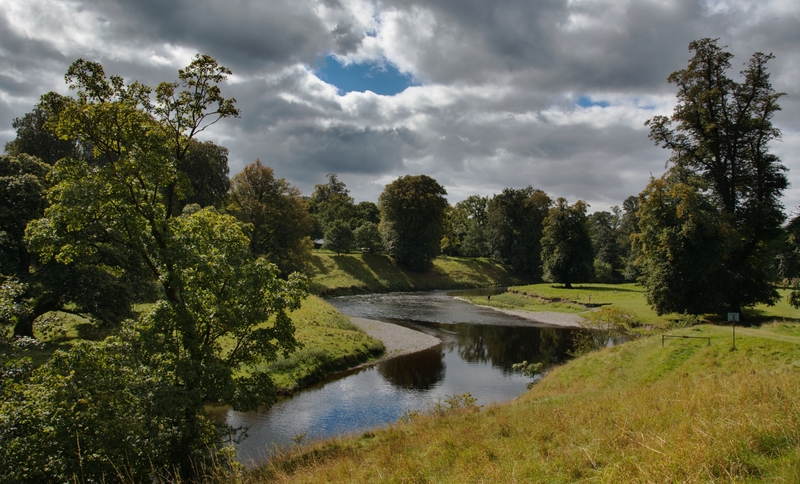3 Efficient Tips for Weed Control You Need to Know
Posted on 30/05/2025
3 Efficient Tips for Weed Control You Need to Know
Weed control is a critical task for any gardener or landscaper who aims to maintain a healthy, beautiful, and productive outdoor space. Unchecked weeds compete with desirable plants for water, light, and nutrients, potentially choking out your flowers or vegetables and introducing pests or diseases. If you're searching for practical, science-backed, and efficient weed management solutions, you've found the right guide. In this comprehensive article, you'll discover three effective weed control tips that will transform the way you manage these persistent invaders.
Why Is Effective Weed Control Essential?
Weeds are much more than just an eyesore--they can ruin gardens, reduce lawn health, and even impact crop yields. Controlling weeds efficiently promotes robust plant growth, lessens the need for chemical interventions, and helps preserve resources such as water and nutrients. Whether you're a home gardener, a professional landscaper, or someone who maintains a larger property, mastering weed prevention and management is vital.
Issues Caused by Poor Weed Management
- Competition for resources: Weeds steal sunlight, water, and nutrients from garden plants.
- Pest and disease harboring: Many weeds shelter harmful pests and plant diseases.
- Reduced crop yields: For agricultural fields, uncontrolled weeds can diminish productivity.
- Unattractive landscapes: Weeds make lawns and gardens look neglected and messy.

1. Use Mulch as a Natural Weed Suppressant
Mulching is renowned for being an eco-friendly and highly efficient garden weed control method. By covering the soil surface with organic or inorganic materials, you block sunlight from reaching weed seeds, thereby inhibiting germination and growth.
Types of Mulch for Optimal Weed Prevention
- Organic mulch: Materials like shredded bark, straw, wood chips, and compost not only suppress weeds but also nourish soil as they decompose.
- Inorganic mulch: Options include landscape fabric, gravel, pebbles, or black plastic. These are especially effective in perennial beds and around shrubs or trees.
How to Mulch for Maximum Weed Control Efficiency
- Prepare the area: Thoroughly remove any visible weeds before spreading mulch.
- Apply mulch generously: Aim for a layer of 2-4 inches thick for optimal coverage. Be cautious not to pile mulch against plant stems or tree trunks to prevent rot.
- Renew annually: Replace or refresh mulch each year to maintain its weed-blocking and moisture-retaining properties.
Incorporating mulch into your garden not only ensures long-term weed management but also improves soil health, preserves moisture, and regulates temperature.
2. Embrace Proactive, Targeted Weeding Techniques
Weed removal is a staple of garden maintenance, but the method matters. Proactive, targeted approaches to weed control are far more time-efficient and successful than periodic, random attempts.
Strategic Manual Weeding
- Pull early and often: Weeds are easiest to remove when young and before they flower or seed. A weekly walk-through with a hand weeder or hoe prevents infestations.
- Target the roots: Uproot weeds completely, ensuring no fragments remain to regrow. This is especially crucial for perennial weeds (such as dandelion and bindweed).
- Weed after rain: Pulling is much easier when soil is moist; roots release cleanly, reducing regrowth.
Use the Right Tools for the Job
- Hand fork or trowel: Best for small, shallow-rooted weeds in tight spaces.
- Hoe: Sharp, flat hoes are excellent for slicing weed tops in larger, open areas.
- Weed puller or extractor: Useful for removing deep-rooted or tap-rooted species.
Spot-Check Often for New Seedlings
Frequent inspections catch new weeds before they become a problem. Establish a habit of scanning both garden beds and lawn areas for emerging weeds, especially after rainfall.
Bonus Tip: Dispose of pulled weeds properly--compost only those that are seed-free and disease-free, or bag and discard to prevent re-infestation.
3. Implement Preventive Practices Through Smart Planting and Maintenance
The most efficient way to control weeds is to reduce their opportunities to establish in the first place. An ounce of prevention truly is worth a pound of cure! Consider these weed prevention strategies to make your landscape less appealing to unwanted plants.
Choose Dense, Competitive Plantings
- Plant closely: Dense plantings shade the ground, minimizing light for weed seeds.
- Use groundcovers: Low-growing perennials or spreading annuals cover bare soil and crowd out weeds.
- Opt for healthy turfgrass: In lawns, maintain thick grass with proper mowing, fertilizing, and watering to outcompete broadleaf weeds and crabgrass.
Maintain Healthy Soil
- Healthy soil = healthy plants: Ensure your soil is balanced, fertile, and well-aerated to promote vigorous desired plant growth that can outcompete weeds.
- Minimize soil disturbance: Tilling and digging bring dormant weed seeds to the surface, encouraging germination. Only disturb soil where necessary.
Use Barriers Strategically
- Landscape fabric under beds: Especially effective for paths, under gravel, or in shrub beds.
- Edging: Physical barriers along garden beds and lawns keep invasive grasses and creeping weeds at bay.
Water Wisely
- Water plants, not weeds: Use drip irrigation or soaker hoses to deliver moisture directly to your plants' roots, leaving surrounding soil dry and inhospitable to weed seedling growth.
With these preventive measures, your garden will naturally resist weed invasions, minimizing the need for frequent weeding or chemical treatments.
Bonus: When Should You Consider Organic or Chemical Weed Controls?
While organic and chemical weed killers (herbicides) can play a role in overall weed management, they should be used judiciously and as a last resort. Always try mechanical, mulching, and preventive methods first.
- Organic herbicides: Clove oil, acetic acid (vinegar), and citrus oils can be effective on young seedlings but usually need repeat applications.
- Chemical herbicides: Reserve for severe infestations, perennial weeds, or areas where other controls aren't practical. Always read and follow label instructions to protect desirable plants, pollinators, and groundwater.
- Spot treat, never spray broadly: Avoid harming your lawn, garden, or surrounding ecosystem.
Maintaining Sustainable Weed Control Over Time
Weed management isn't a one-time effort--it's a continuous process. By combining mulching, strategic manual weeding, and preventive practices, you can drastically reduce weed pressure while promoting healthy, vigorous plant growth. Integrated strategies are always more sustainable and eco-friendly than relying solely on chemicals.
Best Practices for Year-Round Weed Prevention
- Keep mulch topped up and undisturbed for season-long weed suppression.
- Inspect your outdoor spaces regularly for early signs of weed growth.
- Practice crop or plant rotation in vegetable gardens to reduce specific weed problems.
- Clean tools and boots when moving between infested and clean garden areas to avoid spreading weed seeds.
- Adjust your mowing height to favor turfgrass growth over weed competition.
Stay Informed and Adaptive
Weed species and environmental conditions change over time. Learn to identify new invaders, adapt your routine, and integrate the latest weed control best practices into your gardening routine.

Conclusion: Take Charge with These Top Weed Control Tips
Mastering efficient weed control is within reach for every gardener and property owner. By using mulch, committing to targeted manual weeding, and taking preventive measures through smart planting and maintenance, you'll cultivate a landscape where weeds struggle to take hold.
Remember, weed control doesn't need to be overwhelming--with consistency, the right techniques, and a proactive mindset, you can enjoy a thriving, weed-free garden or lawn season after season. Start implementing these three essential weed management tips today for long-term success!
Frequently Asked Questions About Efficient Weed Control
-
Q: What is the most effective weed control method for gardens?
A: A layered approach--combining mulch, proactive weeding, and preventive planting practices--delivers the most effective, long-term weed management. -
Q: When should I mulch my garden for weed suppression?
A: Apply mulch in early spring before weeds germinate and refresh it as needed throughout the growing season. -
Q: Are chemical weed killers safe for home gardens?
A: Use chemical herbicides cautiously and only as a last resort. Focus first on sustainable, non-toxic weed control practices. -
Q: Can I compost weeds I have removed?
A: Compost only seed-free, disease-free weeds. Avoid composting aggressive or perennial weeds, or those with mature seeds.
Ready to reclaim your landscape from pesky weeds? Put these top tips for efficient weed control into action, and enjoy a healthier, more beautiful garden right away!
Latest Posts
Tactics for Winter Plant Protection in Your Garden
The Path to Spectacular Orchid Growth
Implementing Measures to Safeguard Your Garden from Weather Damage

